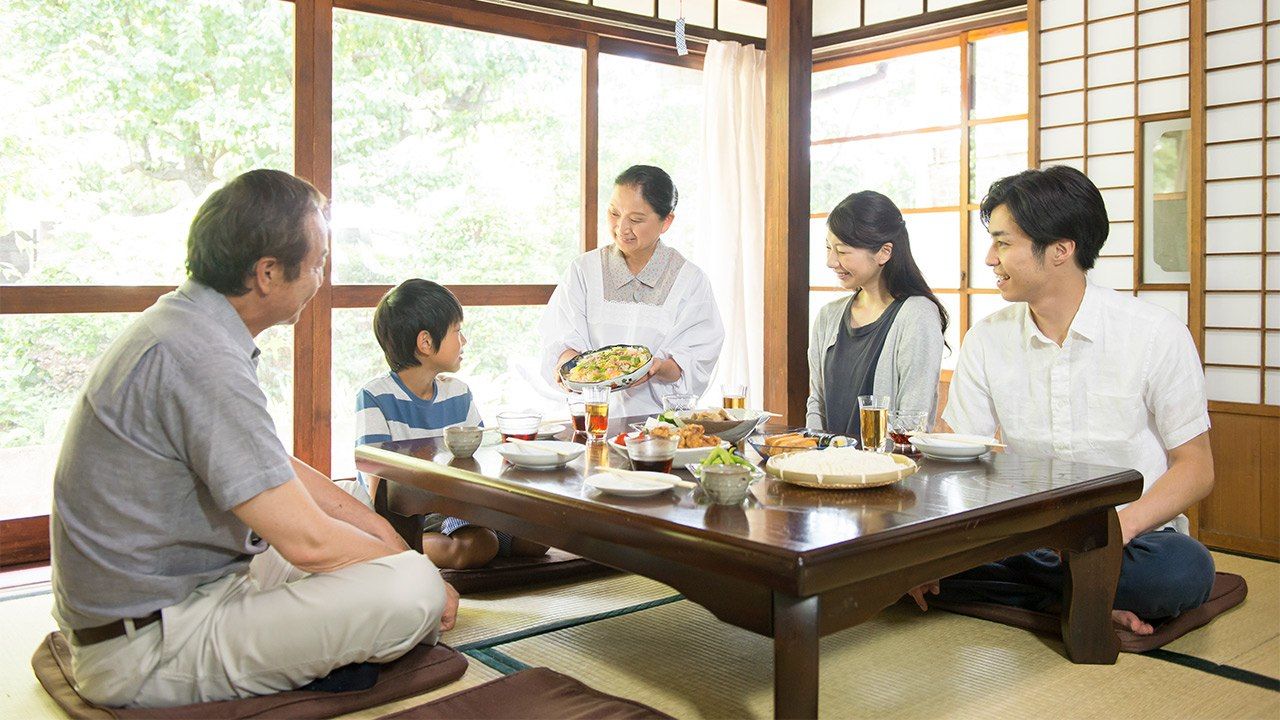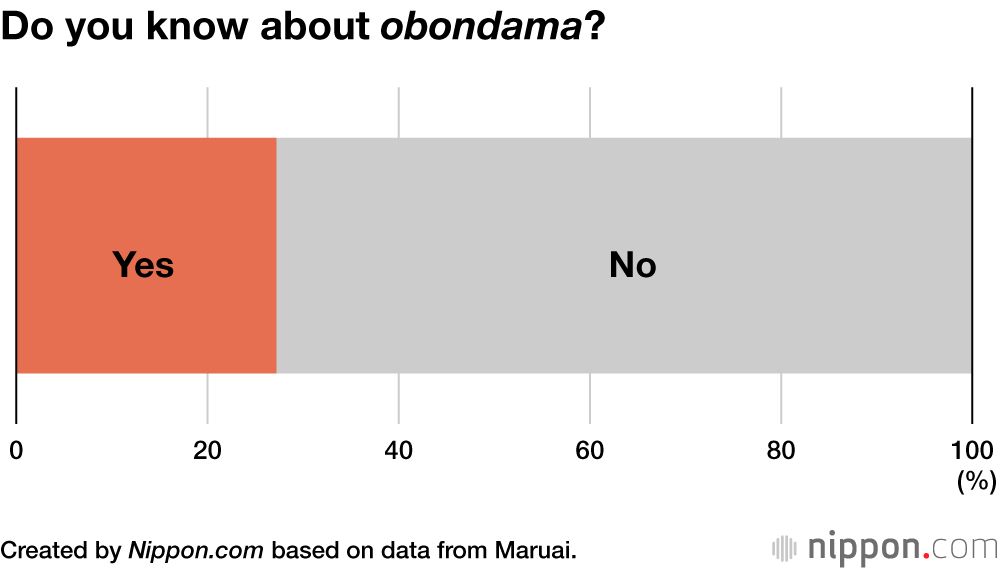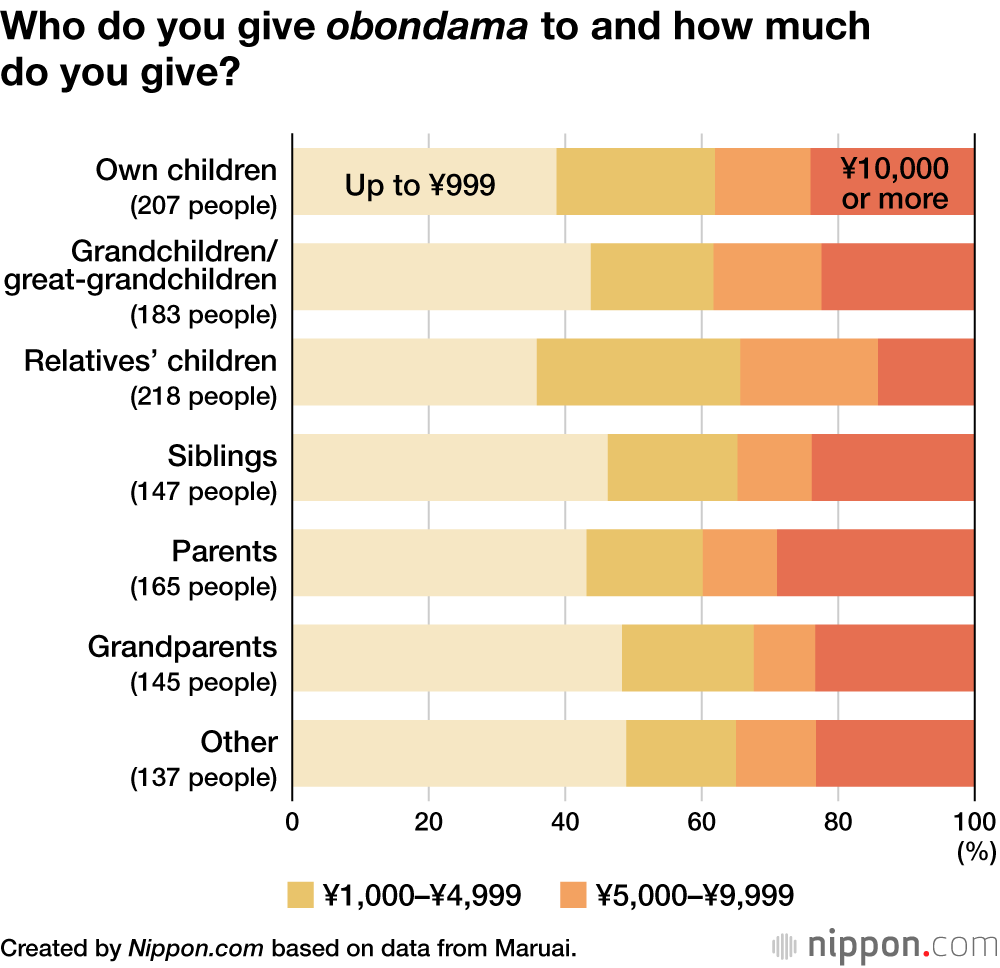
“Obondama”: Summer Pocket Money Not Just for Kids!
Economy Family Lifestyle Society- English
- 日本語
- 简体字
- 繁體字
- Français
- Español
- العربية
- Русский
Obon is the time of year when people visit their hometowns for summer vacation. A custom of giving pocket money to grandchildren and relatives’ children at this season is becoming more common. Much like the tradition at New Year in Japan of giving a monetary gift known as otoshidama, this is called obondama.
In a survey by the paper products manufacturer Maruai targeting 4,812 people aged 20 and over, 27.2% of respondents said they knew about obondama, while 72.8% did not. Although there was no significant difference in awareness among the various age groups, 55.5% of those who knew about obondama were women.
Of those who did know about obondama, around 30% planned to give a monetary gift this summer. At 60.6%, the most common recipients were relatives’ children, followed by 57.5% giving pocket money to their own children, and 50.8% to their grandchildren. On the other hand, there were more than a few cases of giving obondama to adults, with 45.8% presenting money to parents and 40.3% to their grandparents.
While the majority gave amounts up to ¥1,000 as small pocket money, in most of the categories more than 20% gave over ¥10,000. As many as 29.1% gave more than ¥10,000 to “parents.” While otoshidama are mainly given to children, it seems obondama are regarded differently.
People mainly gave obondama “to see the recipient’s happy reaction” and, at 60.0%, the majority placed the money in special envelopes called pochi-bukuro and handed it over personally.
(Translated from Japanese. Banner photo © Pixta.)


